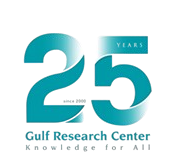Dr. Christian Koch participated in a discussion with H.E. Mevlüt Çavuşolğlu, Minister of Foreign Affairs of the Republic of Turkey, held at the Körber Foundation in Berlin, Germany. Minister Çavuşolğlu spoke on regional issues such as Syria, Iraq, Libya and Yemen as well as focus on the German-Turkish relationship. The meeting was attended by about 35 representatives from the German policy community.
Dr. Christian Koch, Director the GRC Foundation, participated in the workshop on “Yemen: Charting a response to state fragmentation” held by the European Council on Foreign Relations and the Sana’a Center for Strategic Studies in Berlin, Germany. The event brought together about 35 to 40 specialists to look into the growing fragmentation in Yemen and the possible responses of the international community.
Dr. Christian Koch gave a talk at the Emirates Diplomatic Academy in Abu Dhabi focusing on "European Diplomacy towards the Gulf Region" to an audience of approx. 30 participants. Dr. Koch outlined some the impediments that Europe faces when structuring its foreign policy approach to the Gulf region before highlighting specific examples such as Iran, Yemen, the Gulf crisis and Political Islam. Following the talk, Dr. Timo Behr of the Ministry of Foreign Affairs in the UAE provided some comments before holding a wider discussion with the attendees.
Dr. Mohamed Abdel Raouf, Program Manager – GRC Environmental Security and Sustainability Program delivered a presentation titled “Sustainability Challenges in the West Asia Region” to a number of staff and post graduate students at the Research Institute for Humanity and Nature, Kyoto University, Kyoto, Japan on 17 January 2018.”
Dr. Mohamed Abdel Raouf, Program Manager – GRC Environmental Security and Sustainability Program, participated in the 6th International Symposium for Future Earth in Asia, which took place at Kyoto University in Kyoto, Japan on 15-16 January 2018. Dr. Raouf delivered a presentation titled “Sustainable Consumption and Production in West Asia Region.”
Dr. Koch participated in the annual Berlin Foreign Policy Forum organized by the Körber Foundation in Berlin, Germany. The meeting was opened by German Foreign Minister Sigmar Gabriel and featured discussions on the future of the European Project, European Defense and Security Policy, a discussion on the prospects of a Westphalia-like peace approach to the issues confronting the Middle East, and a debate about the implications of the North Korean crisis. The event brought together more than 150 experts and policy practioners.

